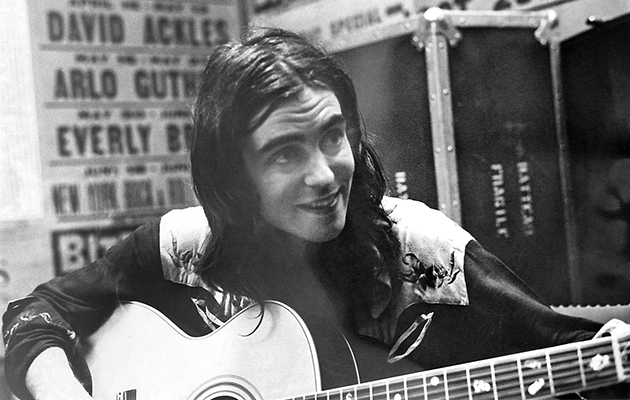For the past 40 years, Terry Reid has lived in California. Today, though, he sits nursing a pint in a pub in St Ives, Cambridgeshire, not far from his mother’s home and the place where he was born in 1949. Long before his flirtation with Led Zeppelin, Reid had experienced more than his share of music business ups and downs – ever since, in fact, he was talent-spotted while singing with a Cambridgeshire beat group, The Redbeats, in 1965.
Recruited by drummer Peter Jay for his band The Jaywalkers, Reid soon found himself on The Rolling Stones’ autumn 1966 package tour, along with Ike & Tina Turner and The Yardbirds, then featuring both Jimmy Page and Jeff Beck. It was a complete eye opener for the 16-year-old. “I thought I’d never get out alive,” he says now, in a gentle, gravelly voice – part East Anglian, part adopted Californian – that makes him sound rather like Keith Richards. “I never heard a note for three weeks, it was just screaming girls, near riots and, at the end of the night, ‘How do I get out of here?’”
Peter Jay & The Jaywalkers, like many clubland R’n’B bands of the period, didn’t last long. But in February 1968, the fledgling solo artist was snapped up by RAK Management, a new partnership between Mickie Most – who had midwifed hits for Donovan, Herman’s Hermits and The Animals – and Peter Grant, who had just taken over working with one of Most’s old acts, The Yardbirds. “They were like the cartoon characters Heckle and Jeckle, they were so different,” remembers Reid. Most and Grant flipped a coin to decide who would manage the young singer; it was Most who called right.
Bang Bang You’re Terry Reid, released in 1968, was an unconvincing mix of covers and vogueish contemporary tunes, just about held together by Reid’s bellowing vocals. It was not a success, though, and another of RAK’s clients were also struggling. Little Games, The Yardbirds’ final album, had been ill-judged, straitjacketed pop (produced by none other than Mickie Most), and now only Jimmy Page and bassist Chris Dreja remained.
“Jimmy wanted to put this group together and he said he wanted me to be the singer,” says Reid. “I said, ‘What’s the band?’ But there was no band. He was just formulating what he might be doing. He asked Steve Winwood, he asked Steve Marriott, he wanted a certain type of singer. I was very flattered and I said, ‘Let’s have a go when I come back off tour’ (Reid was scheduled to play dates in America, including Cream’s farewell shows). Jimmy said, ‘No, I want to put something together now.’
“I remembered seeing Robert Plant and John Bonham in the Band Of Joy when I played with them in Buxton. So I went tearing into the office to see Peter Grant and said, ‘You’ve got to hear these two guys!’ Not just Robert, but the two of them. As a singer, I know there’s a crucial interplay between the drummer and the singer which anybody in a band would understand. Sometimes with bands you can just smell the chemistry, and Zeppelin had that mix of cohesion and aggression. If Bonham wasn’t in that band, and Robert would agree, it wouldn’t have worked the way it did.”
Reid still contends he has no regrets. He had also turned down offers to join Deep Purple (Ian Gillan took up the post) and the Spencer Davis Group. “When Spencer approached me, I had to ask, ‘Do I want to step into Steve Winwood’s boots?’ I knew, quite humbly, I could have pulled off singing the Spencer Davis Group hits, but I’d be compromising myself. I wanted to carve out a niche for myself, which was why I said no to Jimmy.
“People say, ‘You could have been Robert Plant’, but I would still have been Terry Reid. I’m a singer, I play guitar, I write songs my way. I would have been going off all over the place, and Jimmy knew exactly what he wanted. He was always watching, and he saw a big hole in the scene. Cream was gone. The Jeff Beck Group was never going to last. Jimmy knew the sort of band to fill that gap. I’m proud I helped him to get the right band together.”



